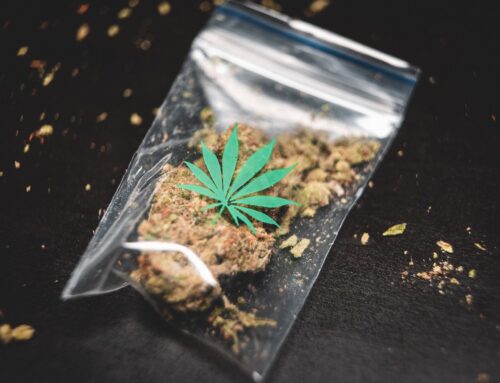Drug possession charges and penalties are serious legal issues that can have long-lasting consequences on an individual’s life. Possessing drugs is considered a criminal offense in most counties in Texas, and the penalties for drug possession can vary depending on the type of drug, the amount of drug, and the location where the offense occurred. In this blog post, we will discuss drug possession charges and penalties in detail.
What is drug possession?
Drug possession refers to the act of having drugs on your person, in your home, or in your vehicle without a valid prescription or authorization from the government. Possession of drugs is considered a criminal offense because it is illegal to possess certain substances that are classified as controlled substances by the government.
The types of drugs that are classified as controlled substances vary by country and include substances such as cocaine, heroin, methamphetamine, and marijuana. Also, possession of certain prescription drugs without a valid prescription can also be considered drug possession.
Drug possession charges and penalties
The penalties for drug possession can vary depending on the type and amount of drug, the location where the offense occurred, and the individual’s criminal history. In most cases, drug possession is considered a misdemeanor offense, but in some cases, it can be considered a felony offense.
Misdemeanor drug possession charges
Misdemeanor drug possession charges are typically reserved for individuals who are found to be in possession of small amounts of drugs. In most cases, the penalties for misdemeanor drug possession include fines and/or probation. In some cases, individuals may be required to attend drug education classes or complete community service as part of their probation.
Felony drug possession charges
Felony drug possession charges are typically reserved for individuals who are found to be in possession of large amounts of drugs or who have a history of drug-related offenses. The penalties for felony drug possession can include fines, probation, and/or incarceration. In some cases, individuals may be required to complete drug treatment programs or attend drug education classes as part of their sentence.
Drug possession penalties by drug type
The penalties for drug possession can also vary depending on the type of drug that was found in an individual’s possession. Here is a breakdown of the penalties for drug possession by drug type:
- Marijuana: In some counties, possession of small amounts of marijuana may be considered a misdemeanor offense, and the penalties may include fines and/or probation. However, possession of larger amounts of marijuana can be considered a felony offense and can result in more severe penalties.
- Cocaine: Possession of cocaine is considered a felony offense, and the penalties can include fines, probation, and/or incarceration.
- Heroin: Possession of heroin is considered a felony offense, and the penalties can include fines, probation, and/or incarceration.
- Methamphetamine: Possession of methamphetamine is considered a felony offense, and the penalties can include fines, probation, and/or incarceration.
- Prescription drugs: In some cases, possession of prescription drugs without a valid prescription can be considered drug possession. The penalties for possession of prescription drugs can vary depending on the type of drug and the amount found in an individual’s possession.
Drug possession penalties by location
The penalties for drug possession can also vary depending on the location where the offense occurred. For example, On school grounds: Possession of drugs on school grounds is considered a serious offense, and the penalties can be more severe than for possession of drugs in other locations. In some cases, individuals may be required to attend drug education classes or complete community service as part of their sentence.
Factors that Impact Penalties for Drug Possession Charges
Several factors can impact the penalties for drug possession charges, including:
- Type of Drug – Different drugs carry different penalties. For example, possession of marijuana may result in different penalties than possession of cocaine or heroin.
- Amount of Drug – The amount of drugs in question can impact the severity of the charges and the penalties associated with those charges.
- Criminal History – Defendants with a history of drug offenses may face more severe penalties than first-time offenders.
- Age of Defendant – Juvenile defendants may be subject to different penalties than adult defendants.
- Aggravating Circumstances – Certain aggravating circumstances, such as possession of drugs near a school or in a public park, may result in more severe penalties.
- Mitigating Circumstances – Certain mitigating circumstances, such as a defendant’s cooperation with law enforcement or the defendant’s willingness to seek drug treatment, may result in reduced penalties.
Common defenses against drug possession charges.
- Lack of Knowledge or Control: One of the most common defenses against drug possession charges is the lack of knowledge or control over the drugs in question. If the defendant was unaware that the drugs were in their possession, or if they had no control over the drugs, they may be able to argue that they did not knowingly possess illegal drugs. For example, if the drugs were found in a car that the defendant was a passenger in, they may be able to argue that they had no control over the drugs and did not know they were there. Similarly, if the defendant was staying in a hotel room where drugs were found, they may be able to argue that they had no knowledge of the drugs’ presence.
- Unlawful Search and Seizure: Another common defense against drug possession charges is the argument that the police conducted an unlawful search and seizure. Under the Fourth Amendment of the U.S. Constitution, individuals have the right to be free from unreasonable searches and seizures. If the police violated this right by conducting an illegal search or seizure, any evidence obtained as a result may be excluded from the case. For example, if the police searched a defendant’s home without a warrant or probable cause, any drugs found during the search may be inadmissible in court. Similarly, if the police stopped and searched a defendant’s car without a valid reason, any drugs found during the search may also be inadmissible.
- Entrapment: Entrapment is a defense that argues that the defendant was induced or encouraged by law enforcement to commit a crime that they would not have otherwise committed. If the defendant can show that they were coerced or pressured into possessing drugs by law enforcement, they may be able to argue entrapment. For example, if an undercover officer repeatedly offered drugs to a defendant until they finally accepted, the defendant may be able to argue that they were entrapped. However, it is important to note that the defendant must have had no predisposition to commit the crime in question for entrapment to be a viable defense.
- Mistaken Identity: Mistaken identity is a defense that argues that the defendant was not the person who possessed the drugs in question. If the prosecution cannot prove beyond a reasonable doubt that the defendant was the person in possession of the drugs, the defendant may be able to argue mistaken identity. For example, if the drugs were found in a bag or backpack that did not belong to the defendant, they may be able to argue that they were mistakenly identified as the owner of the bag.
- Medical Necessity: In some cases, a defendant may be able to argue that their possession of drugs was medically necessary. This defense is most commonly used in cases involving marijuana possession for medicinal purposes. For example, if the defendant has a medical condition that can be treated with marijuana, they may be able to argue that their possession of marijuana was necessary for their health and wellbeing.
Conclusion
Drug possession charges are serious offenses that can have severe consequences. However, there are several defenses that a defendant can use to fight these charges. If you have been charged with drug possession, it is important to consult with an experienced criminal defense attorney who can help you build a strong defense and protect your rights.





